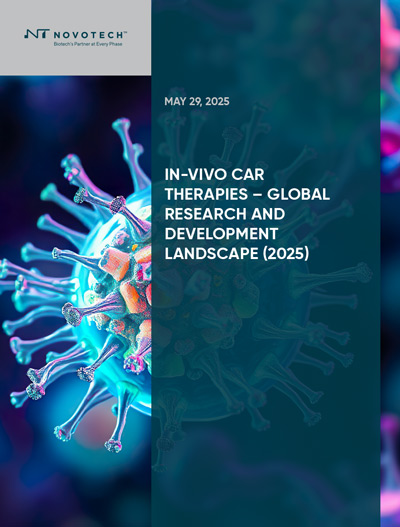Key insights include:
- Delivery innovations using viral and non-viral systems.
- Pipeline growth beyond oncology into autoimmune indications.
- Strategic trial execution across global regions.
- Regulatory and commercial considerations for developers.

Explore global trends shaping in-vivo CAR therapies—delivery innovations, clinical trial momentum, and regulatory strategies across oncology and autoimmune diseases.
In-vivo CAR (Chimeric Antigen Receptor) therapies represent a transformative leap in immunotherapy—engineering T cells directly within the patient’s body. This eliminates the need for cell extraction or lab-based processing, offering scalable, off-the-shelf treatment. Traditional CAR-T therapies face barriers like high cost, limited access, and complex manufacturing, reflected in 2022 when only 20% of eligible lymphoma patients could access care.
Innovations in lipid nanoparticle (LNP) systems, viral vectors, and mRNA platforms have accelerated pipeline growth. From 2020 to 2024, the number of in-vivo CAR assets grew more than tenfold. With global funding exceeding $2 billion, the field is projected to surpass 100 disclosed assets by the end of 2025. First-in-human clinical trials have been launched in 2025, supported by high-profile alliances including AbbVie-Umoja and AstraZeneca-EsoBiotec.
Authored by Novotech, a global biotech CRO, this whitepaper examines scientific advances, key trials, and regulatory strategies across the US, Europe, and Asia-Pacific. It provides a comparative analysis of ex-vivo vs. in-vivo CAR platforms and highlights the therapeutic expansion into autoimmune and fibrotic diseases.







